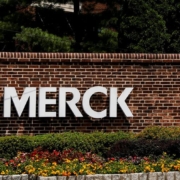The American Association for Cancer Research (AACR) Annual Meeting is running from April 7-13 in New Orleans, with hundreds of presentations on cutting-edge cancer research. The presentations run the gamut from preclinical studies to late-stage clinical trials. BioSpace looks at some of the preclinical and early-stage studies presented.
In Expected Decision, FDA Rejects Lilly’s Sintilimab in NSCLC
Alliances, Biologics License Application (BLA), Business, Checkpoint Inhibitors, Clinical Trials, Complete Response Letter, EGFR tyrosine kinase inhibitors (TKI), Eli Lilly, FDA, Hepatocellular Carcinoma, Non-Squamous Non-Small Cell Lung Cancer (NSCLC), PD-1 Inhibitors, R&D, TherapeuticsThe U.S. Food and Drug Administration rejected Eli Lilly’s Biologics License Application, issuing a Complete Response Letter for the company’s PD-1 checkpoint inhibitor sintilimab.
FDA approves BMS’ first-in-class LAG-3-blocking antibody combination for advanced melanoma
Approvals, Bristol Myers Squibb, Checkpoint Inhibitors, Clinical Trial Endpoints, Clinical Trials, FDA, First-In-Class, LAG-3 protein, Metastatic Melanoma, PD-1/PD-L1 inhibitors, Primary Endpoints, Progression-Free Survival (PFS), R&DBristol Myers Squibb’s Opdualag – a new, first-in-class, fixed-dose combination of nivolumab and relatlimab, administered as a single intravenous infusion – was approved by the U.S. Food and Drug Administration for the treatment of adult and pediatric patients 12 years of age or older with unresectable or metastatic melanoma.
Merck announced that the company’s proposed treatment Keytruda for non-small cell lung cancer delivered positive results from a Phase III trial.
FDA’s ODAC Says Lilly & Innovent Must Run U.S. Trial
Business, Checkpoint Inhibitors, China, Clinical Trial Endpoints, Clinical Trials, Ethnicity, FDA/Regulatory, Lung Cancer, Oncologic Drugs Advisory Committee (ODAC), PD-1 Inhibitors, Primary Endpoints, Progression-Free Survival (PFS), R&D, Therapeutics, United StatesThe Food and Drug Administration’s Oncologic Drugs Advisory Committee (ODAC) recommended that Eli Lilly and Co. and Innovent Biologics Inc. conduct a clinical trial applicable to the U.S. population for the lung cancer drug sintilimab. The U.S. FDA previously raised concerns over a clinical trial conducted entirely in China focused on a single ethnic group.
Researchers studying Merck & Co. Inc.’s cancer drug Keytruda for HIV patients who also have cancer say the immunotherapy may help displace the virus from human immune cells, offering an intriguing area of study for treatment of chronic HIV infection.
Lexington, Mass.-based Agenus withdrew the company’s Biologics License Application (BLA) for the PD-1 inhibitor balstilimab from the U.S. Food and Drug Administration.
Non-small cell lung cancer (NSCLC) is one of the most devestating diagnoses and highest unmet needs in the oncology space. EQRx, which intends to solve pricing and access challenges for patients, unveiled new data at the European Society for Medical Oncology (ESMO) Congress 2021 showing that it might just have the answer to NSCLC too.
Pancreatic cancer has the lowest survival rate of the most common cancers as less than 10 percent of patients survive longer than five years, largely due to most cases being diagnosed at a late stage. A collaboration between NovoCure and Roche hopes to improve those odds.
The U.S. Food and Drug Administration accepted for review a Biologics License Application (BLA) for the anti-PD-1 antibody tislelizumab as a treatment for patients with unresectable recurrent locally advanced or metastatic esophageal squamous cell carcinoma (ESCC) after prior systemic therapy.









